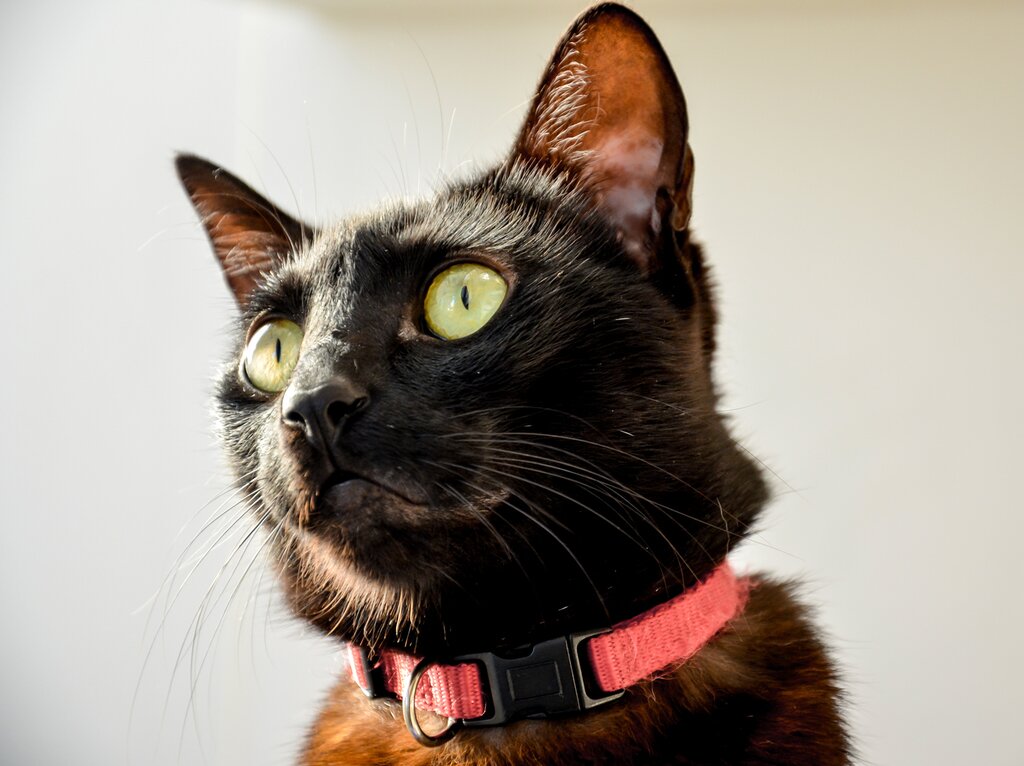Dear Ms. Kitty,
I see posters for missing cats and worry about losing mine. My Lucy is an indoor cat, but she gets curious about the outdoors. I sometimes leave her care to my neighbor, and I always worry she will slip out the door. Would it be smart to put a collar and tags on her?
Concerned in Cragmor
I understand your concern for Lucy’s safety, especially if you are away and her routine changes.
A collar and tag on Lucy might help identify her if someone sees her outside. Unfortunately, she might not get close enough to a stranger for it to be read.

Unlike dogs who might interact with passersby, most cats are going to hide from strangers. But if Lucy is found and taken into a house or to a local shelter, a tag with contact information would be helpful.
Many found cats are reunited with their humans when their implanted microchip is scanned by a local veterinarian or shelter. Collars can fall off, so be sure that Lucy is microchipped and your contact information is current with the microchip company.
This is especially important around holidays like Halloween when dangers to outside cats, especially black cats, are high.
People put collars on cats for a variety of reasons:
- Identification
- Attachment for RFID tag to open a cat flap or a feeding dish
- Attachment for bells or brightly colored tubes to announce the cat to other animals, birds and wildlife
- Attachment for current rabies tag
- Dispense calming pheromones or natural pest control
If you’re mainly concerned about Lucy getting out and lost, you may want to train her not to door dart. You can teach her to wait on a designated spot, away from the door, with clicker training.

You can also reward her for staying out of the doorway by placing a container of treats or toys near the door and tossing them across the room to distract Lucy when you are coming and going.
Harness training would give you a safe way to satisfy Lucy’s curiosity about the outdoors. When taught properly, the harness trained cat will wait to be invited or carried across the threshold and not dash outside.
If you decide to place a collar on Lucy, remember it is SAFETY FIRST. You want a collar that will be comfortable and designed to release if she got it caught on something.
Some collars are stretchy, while others have closure devices that will release with moderate pressure. The collar should fit snugly but allow you to place two fingers underneath for comfort.
If the collar is loose, she might try to take it off and get a leg through it or get it stuck in her mouth. Cats will crawl in small spaces and if the collar is too loose and does not have a safety release, she risks choking.
If Lucy initially reacts by acting fearful or biting at the collar, a very lightweight collar can be her training collar. Called bikini collars, these are made with very thin but strong climbing rope with breakaway clasps. Once she adjusts to this, you can graduate to a wider collar.
It is important to supervise her after fitting with a collar to reassure her and observe any problems. Check the fit of the collar frequently to make sure it is still fitting well and there are no signs of irritation. This is especially important for growing kittens.
If you decide to add tags, make sure they are small and do not hinder her. A regular dog tag on a cat is like putting a tag the size of a saucer on most dogs, proportionately. I like tags made from lightweight plastic or rubber so they will not clank against her bowl.
Please make sure to microchip Lucy first. Then you can decide if a collar is right for her…and you!
Sara Ferguson is the Director of Happy Cats Haven and Carole Galloway is the owner of Colorado Cats Boarding. Ask Ms Kitty supports cat behavior consulting offered on our website through our Helpline.




